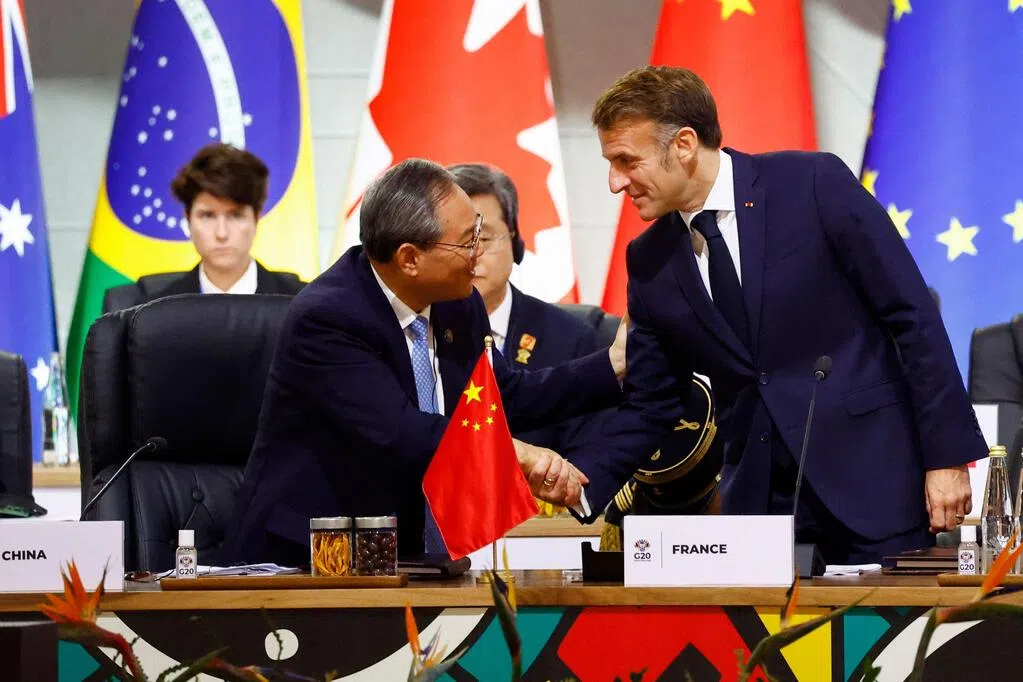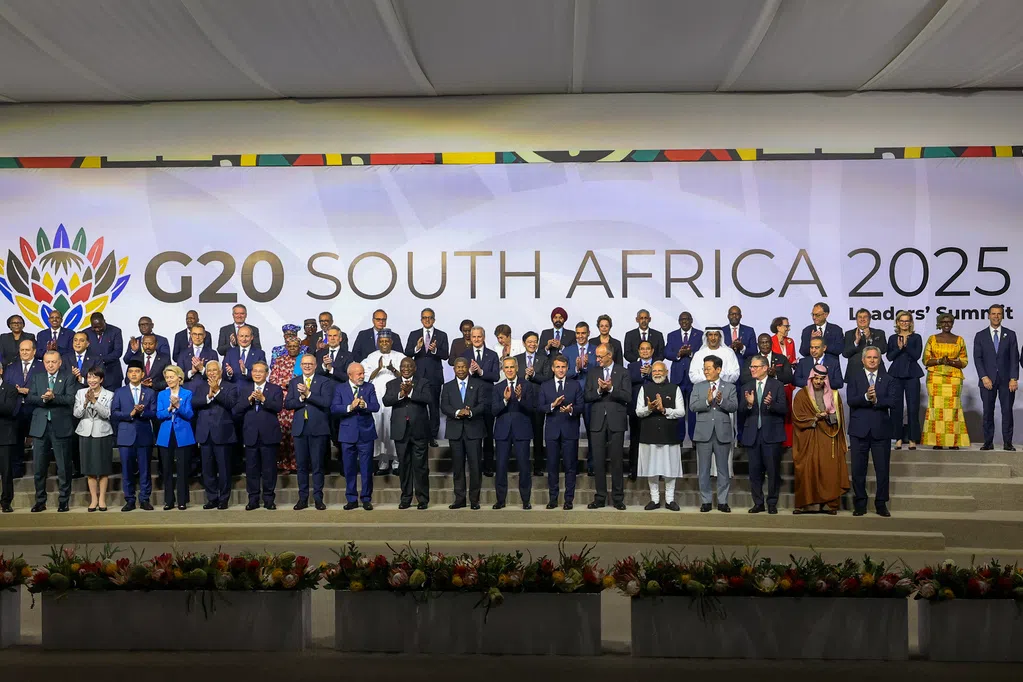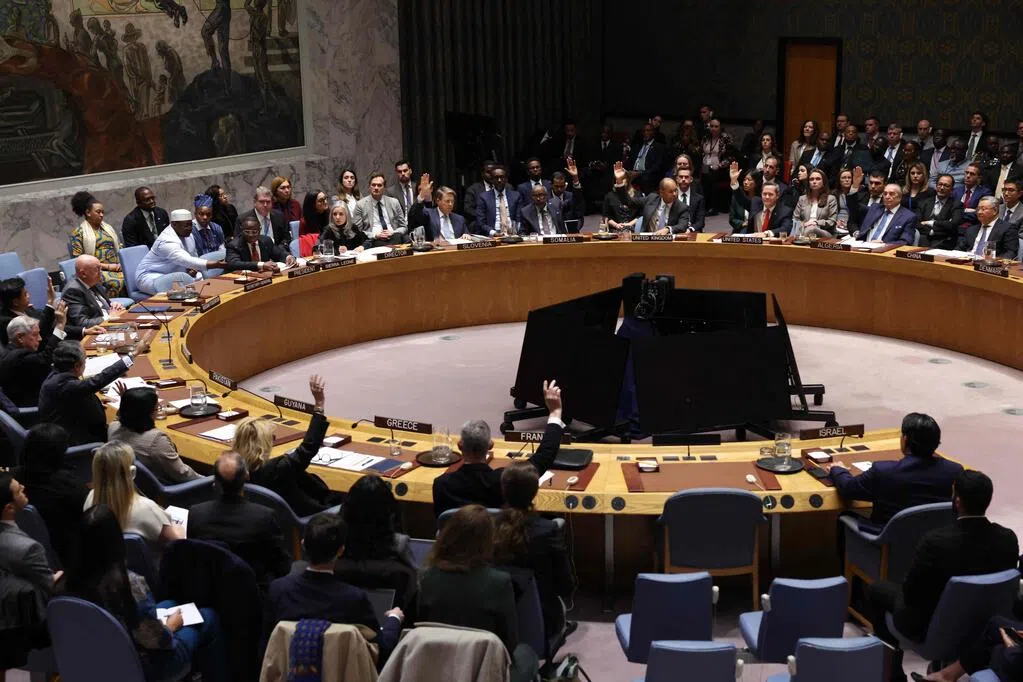(Johannesburg) The 20th G20 summit, held in Johannesburg with a boycott from the United States, adopted a summit declaration with "overwhelming consensus," prompting the White House to criticize South Africa for using its rotating presidency as a "weapon." South Africa, in turn, stated that the declaration's contents were "not open to renegotiation."
The 20th G20 Leaders' Summit opened in Johannesburg on Saturday (November 22), breaking with tradition by adopting a joint declaration on its opening day. The declaration emphasized the severity of climate change and called on all parties to address the heavy debt burden of poor countries. A spokesperson for South African President Cyril Ramaphosa, representing the host country, subsequently stated that the declaration's contents were "not open to renegotiation."
The United States boycotted the summit, choosing to be absent and not participating in the drafting of the declaration, yet strongly opposed its contents. After the declaration's adoption, White House spokesman Kelly harshly criticized South Africa, accusing Ramaphosa of refusing to smoothly hand over the G20 presidency to the United States and pushing through the declaration despite continued and strong opposition from the US. "This shows they are using their G20 presidency as a weapon, undermining the founding principles of the G20," Kelly said.
Kelly added that US President Trump expects the US to "restore the legitimacy of the G20" when it takes over the presidency next year.
South Africa: The G20 is not just about the US; member states must determine the direction of the world.
The Trump administration boycotted this year's summit, citing the predominantly Black South African government's alleged persecution of local white people. Sources revealed that White House officials condemned the other member states' drafting of a declaration on Friday (September 21) in the US's absence as "disgraceful."
Further Reading


South African Foreign Minister Ramola, in an interview with South African media, said, "The G20 is not just about the United States; all member states are equal. This means we have to make a decision. The participants decided that this is the direction the world should move in."
The summit declaration emphasized the severity of climate change, praised countries for their ambitious goals in promoting renewable energy development, and called on all parties to address the heavy debt burden of poor countries, including language that Trump has consistently rejected.
Ramaphosa stated that participating countries reached an "overwhelming consensus" on the declaration. However, South African officials revealed that Argentina withdrew from the consultations just before the draft declaration was to be adopted. The far-right Argentine President Milley is a close ally of Trump.
Argentine Foreign Minister Erno said at the summit, "Although Argentina cannot support this declaration... it remains fully committed to implementing the spirit of cooperation upheld by the G20 since its inception."
He pointed out that Argentina had concerns about the wording regarding geopolitical issues in the declaration. "Specifically, the declaration's description of the long-standing Middle East conflict fails to fully reflect its complexity. The document mentions the Middle East conflict only once, stating that member states agree to strive...for a just, comprehensive, and lasting peace in the occupied Palestinian territories."
Member states are concerned that escalating geopolitical divisions may be bringing the G20's role to an end. This summit comes at a time of growing disagreement among major world powers on how to end the Russia-Ukraine war and the difficult conclusion of the COP30 climate change conference. G20 leaders warned that the group's role in resolving the economic crisis may be weakened by geopolitical divisions.
In his opening address on Saturday, French President Macron warned that while the G20 is working to resolve major crises, due to emerging cracks in international cooperation, "the G20 may be heading towards the end of a cycle." British Prime Minister Keir Starmer also pointed out: "The road ahead is undoubtedly difficult. Faced with the challenges of today's world, we must find new ways to play a constructive role again."
Chinese Premier Li Qiang also emphasized: "Currently, the world economy is facing enormous challenges again. Unilateralism and protectionism are rampant, and various trade restrictions and confrontations are increasing... The G20 should face up to the existing problems, explore solutions, and promote the return of all parties to the right track of unity and cooperation."
The United States will assume the G20 presidency next year. Due to Trump's absence from this summit, the US sent a chargé d'affaires ad interim to South Africa for the handover, but this was rejected by South Africa.
South African Foreign Minister Ramola told Sputnik News that because the handover ceremony must be completed by the head of state or a formally designated ministerial-level official, and the US only submitted its application at the last minute, South Africa was unable to arrange the relevant procedures during the summit. He said the handover ceremony would be held as early as Monday (24th) at the South African Ministry of Foreign Affairs, at which time "equal officials" from both sides would complete the handover procedures.



